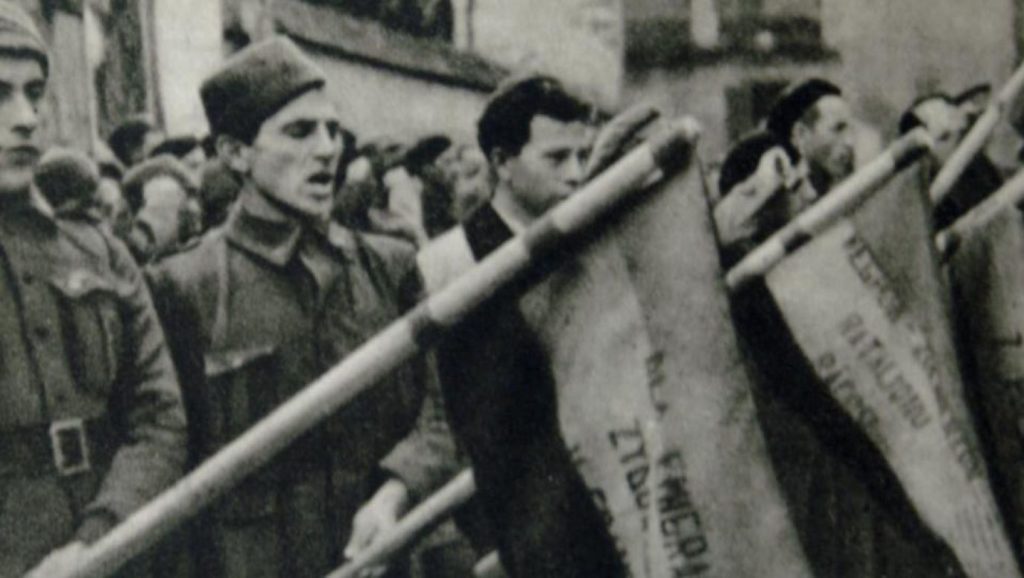Polish volunteers strike again
Jeremi Galdamez
On January 24 1939, the 13th Dabrowski Brigade were set up for the second time. While the majority of the volunteers had been discharged and sent off to their fatherlands, many others, not being able to leave Spain, went back to combat. This remains forgotten in the history of the Brigades.
The International Brigades were resolved by a republican government in October 1938 under pressure from the League of Nations in hopes for Franco’s side to withdraw their troops as well.
Despite having been discharged, Polish volunteers could not leave Spain – unlike many other volunteers: the Polish government took away their citizenship, turning them into stateless persons. Only some of them – mostly those who held dual citizenship – managed to leave. Mexico agreed to welcome all ex-volunteers; however, given that their transit was supposed to take place via France, whose government did not allow that, Polish brigadists could not take that help.
So on 23 January 1939, as the fascists were approaching Barcelona, the Polish volunteers stationed in Catalan pueblo Palafrugell alongside their counterparts from other countries (among them Ukrainians, Belarusan, Jewish) arranged a rally to ask the government to bring them back on the frontline. In the petition, they wrote: “We can’t put up with murdering women and children and the savagery of fascists who take advantage of the malicious ‘help’ from so-called democratic governments”.
On January 24 the government agreed to their plea. In the course of one day, the 13th International Dabrowski Brigades were brought back. Apart from Polish volunteers, there were also Hungarians and Balcans. Brigades 11th and 15th were also restored. They immediately set off to Barcelona, hoping they would miraculously turn it into “another Madrid” – an invincible fortress.
On January 26, Agrupación de Fuerzas Internacionales was formed. Its first leader was Adolf Reiner from Austria, but the next day was changed to Henryk Toruńczyk from Poland. Unfortunately, on the very same day Barcelona was taken by fascists. In those circumstances, the volunteer’s main task was to slow down the fascist troops and protect the hundreds of thousands civilian refugees on their way to France.
The 13th Brigade fought: Jan 27-29 in La Garriga y Granollers; Jan 30 in Seva; 2-3, Feb in Casa de la Selva; 4 February in Gerona; Feb 5 in la Bisbal; Feb 6 by the river Ter; Feb 8 in Figueras.
Brigadist Jan Wyka wrote that day in his diary: “Via Figueras we arrived to join the Brigades, and via Figueras we leave. It’s like a running race: the finish line is where the starting point was".
Finally, on February 9 the Polish volunteers crossed the Spanish-French border. The 13th Brigade was one of the last republican units to leave Cataluña.

